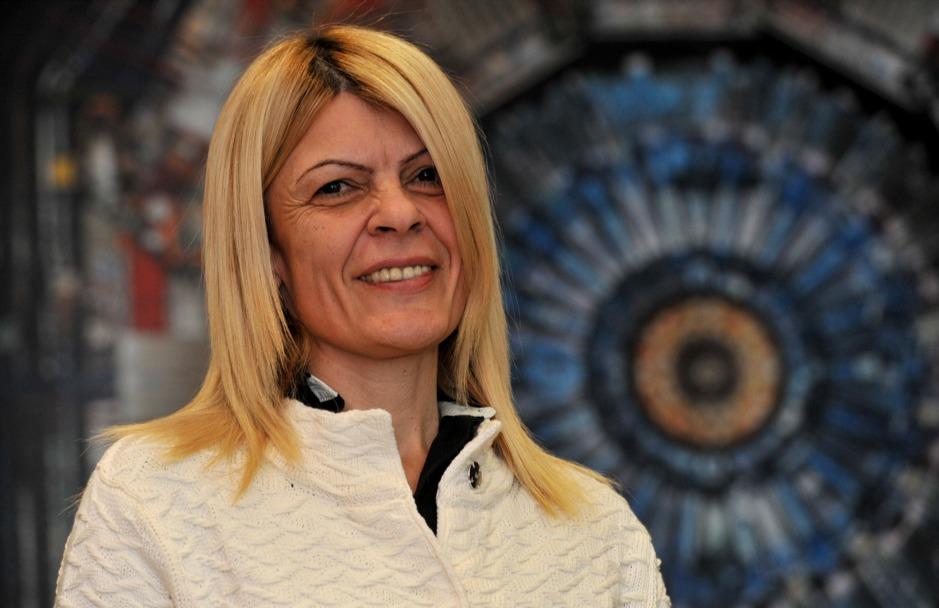Date and time: 29 August 2024 – 16:00 CET (10:00 CET)
Biography:
Dr. Sanja Damjanovic is a Scientist/Physicist with over 20 years of experience working at prominent international research institutions such as CERN in Geneva and GSI Helmholtz Centre for Nuclear Research in Darmstadt, Germany. In addition to her scientific career, she had the honor of serving as the Minister of Science in the Government of Montenegro from November 2016 to December 2020.
She made her Diploma in Physics at the University of Belgrade and her PhD from Ruprecht-Karls University Heidelberg in 2002. She continued her scientific career at CERN. In 2006 she obtained a CERN Fellowship, and award-type position, becoming the first scientist from the former Yugoslavia directly employed by CERN. Since 1999 she was embedded international teams and has ever since worked in two large International Organizations, at CERN and GSI-FAIR, contributing to high-energy nuclear physics research with over 100 publications. In 2007, she initiated an international cooperation agreement between Montenegro and CERN.
During her Ministerial term, she focused on developing Montenegro’s innovation ecosystem and led the country to become the first outside the EU to adopt the Smart Specialization Strategy (S3.me), approved by the European Commission in 2019. Her term ended with the best grades for the Chapter 25 in the 2020 European Commission Report for Montenegro.
Dr. Damjanovic also promoted regional cooperation, leading the creation of the Southeast European International Institute for Sustainable Technologies (SEEIIST). She was the first Chairperson of the SEEIIST Steering Committee and coordinated the SEEIIST@ESFRI Roadmap 2021 application.
After her ministerial term, she resumed a permanent position at GSI-FAIR and continues to promote the SEEIIST Project. She is the President of the General Assembly of the EU H2020 HITRIplus project, which attracted 18 European research centers and clinics to finilize the Design phase for SEEIIST. She is also a member of the EU Science Diplomacy Working Group and the International Academy of Science and Arts in Bosnia and Herzegovina (IANUBIH).
Abstract
Inspired by successful models like CERN and SESAME, South-East European states are collaborating to establish the South East European International Institute for Sustainable Technologies (SEEIIST). SEEIIST aims to enhance regional cooperation in science, technology, and industry, promoting a sustainable economy and social cohesion through advanced research and technology, and fostering mutual trust. Supported by the Government of Montenegro since March 2017 under the leadership of Minister of Science, Dr. Sanja Damjanovic, SEEIIST aims to have a direct societal impact and attract political support.
Proposed as an Accelerator-based Research Infrastructure for Cancer Therapy and Biomedical Research with Ion Beams, SEEIIST’s concept and initial design were championed by Prof. Hans J. Specht and Prof. Ugo Amaldi. Their vision has gained momentum, garnering political backing from 10 SEE countries who signed the Declaration of Intent at CERN in October 2017. Initial financial support from the European Commission kickstarted the Design study, backed by 18 prominent European research centers and clinics. SEEIIST leverages accelerator technology to advance cancer therapy, aiming to extend benefits widely, building on lessons from the LHC construction.
Currently in its final design phase and poised for the preparatory phase, SEEIIST holds prominent status in the EU Agenda and Western Balkans’ Economic Investment Plan. Recognized as one of six leading EU-Western Balkans projects in the Innovation Agenda, SEEIIST is integral to the Reform Agenda of several regional countries. Endorsed by the EU Parliament in the New Growth Plan for the Western Balkans, SEEIIST stands as a flagship project for EU enlargement, exemplifying effective science diplomacy and global development goals in medical accelerator technology.

